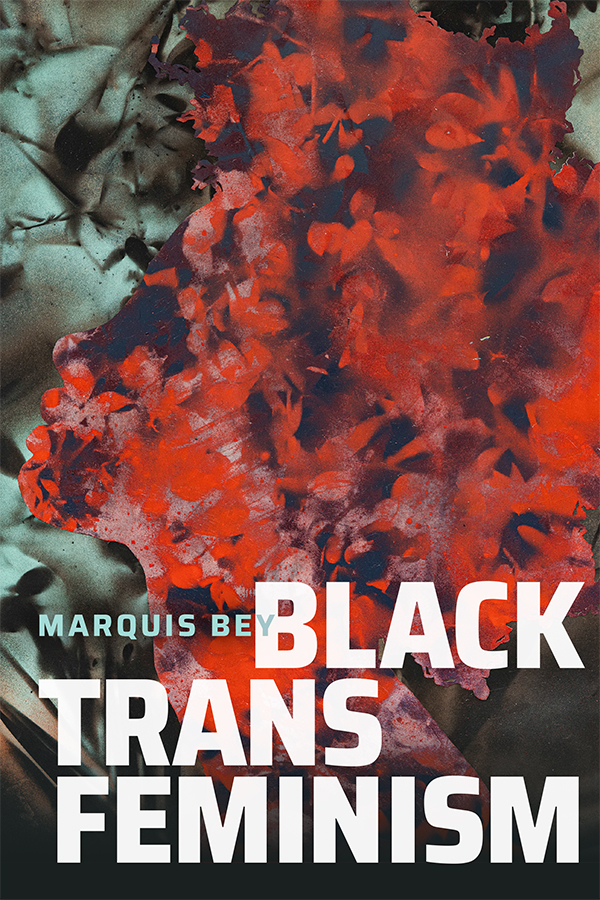Black Trans Feminism by Marquis Bey

Marquis Bey’s brilliant unpacking of black trans feminism portrays it as wholly interconnected to
worldly inhabitation through history, law, medicine, literature, and explores its numerous facets.
Tracking the unfixed nature of these titular categories through history, Bey establishes gender
transgression as close kin to blackness and fugitivity, tying them together under a vision of abolition.
The book is presented in two parts, with Part 1 meditating black trans feminism from different
angles, looking three titular terms in relation to each other, and later combining frameworks from
scholars like Hortense Spillers, Kai M. Green and Treva Ellison to move away from these categories
and their philosophical implications. Part 2 articulates black trans feminism textually, specifically
through poetry, putting readings of black feminist authors in dialogue with black trans feminist poets
and essayists such as jay dodds and Venus Di’Khadijah Selenite.
Calling for the ‘letting go’ of the historically-contingent signatories we live by, Bey presents Black
Trans Feminism as a ‘celebratory and radical analysis’ of the classification of anti/antecategorical
blackness/transness/feminism, with abolitionist gender radicality at its heart. In their words; ‘This
book urges abolition in a broad sense: the making impossible[…] of carcerality, of any form of
captivity, which can include categorical taxonomies, agential circumscription, and the like. We create
abolition and do abolition in each moment we move toward the alleviation of subtle ways of
curtailing the ability of anyone to become liberated.’
And again, in her words: ‘We cannot half-ass abolition […] If we want freedom, we need to free
ourselves, too, of the things with which we capture ourselves.’
Black Trans Feminism is a challenging but delightfully exciting read that questions the relations of
captivity and how we can go about disrupting ‘the terror of the normative’ through black trans
feminism. I don’t think I’ve ever had a more fun uphill fight than when reading this book.
Review written by F. Fonseca
